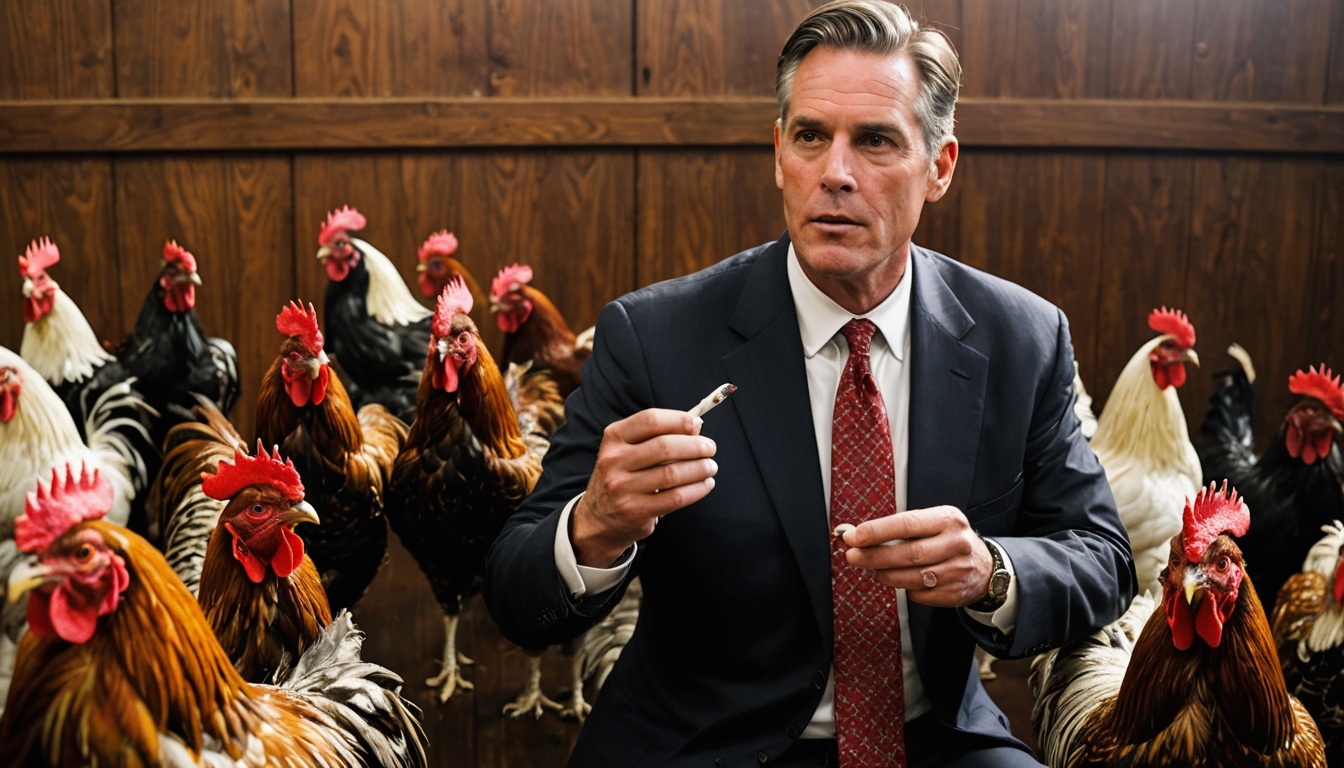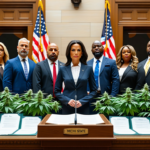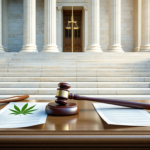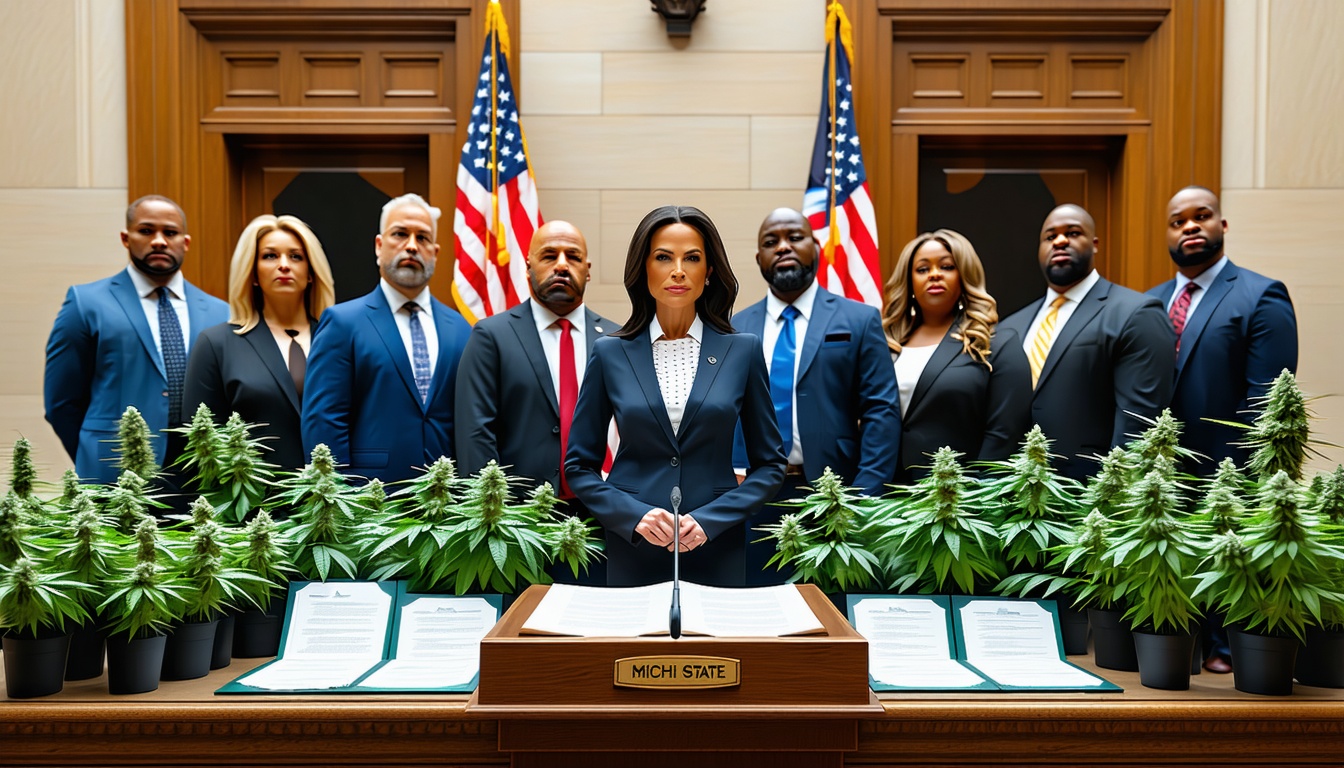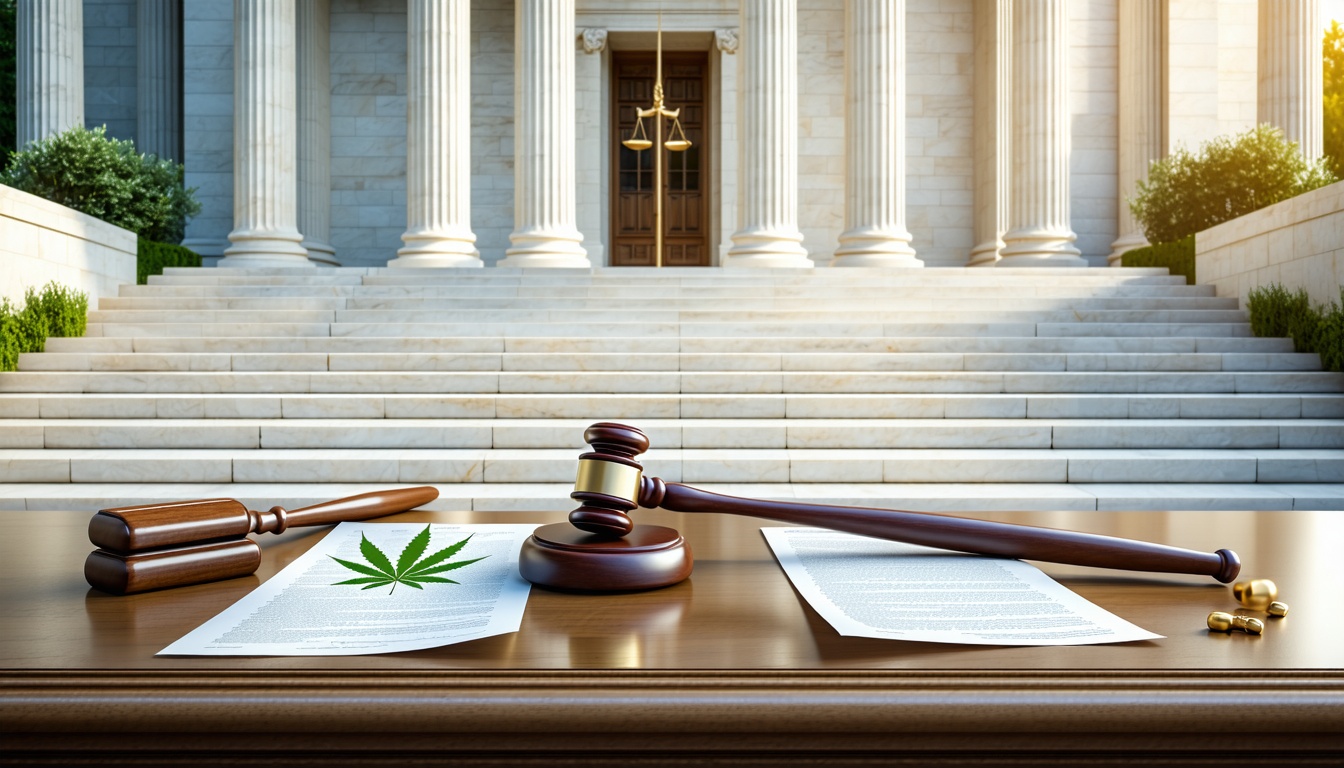Texas District Attorney Defies State’s Marijuana Ban with Public Smoking Stunt
In a bold move, Sarah Stogner, a Republican district attorney in West Texas, recorded herself smoking marijuana on social media to protest the state’s ban on recreational use of the drug. The stunt, which was live-streamed on TikTok, showed Stogner smoking a joint she purchased legally in New Mexico, surrounded by roosters crowing in the background.
Stogner, who has a history of unconventional campaigns, is seeking to draw attention to the Texas legislature’s consideration of a ban on hemp products containing THC, the intoxicant in marijuana. She believes that Texans are tired of the state’s outdated laws and wants to challenge the status quo.
As a district attorney, Stogner has struggled to fit in with the Texas Republican Party, which she has criticized for its conservative stance on social issues. She has also been at odds with Governor Greg Abbott and Lieutenant Governor Dan Patrick, who are pushing for a ban on intoxicating hemp products.
Stogner’s actions have sparked controversy, with some critics arguing that she is putting her own interests ahead of her duties as a district attorney. She could face a misdemeanor possession charge and potentially even removal from office under a Texas law that allows for the ouster of local officials who show “gross carelessness” or “gross ignorance” of their duties.
Despite the risks, Stogner remains defiant, saying that she is willing to take a stand for what she believes in. “I don’t think there should be a ban on anything when it comes to marijuana,” she said in an interview. “Texans are tired of it. We’re behind the times.”
Stogner’s actions have also raised questions about the state’s continued prohibition on marijuana, which has created law enforcement challenges and left many residents feeling frustrated. As a district attorney, Stogner has seen firsthand the difficulties of enforcing outdated laws, and she believes that it’s time for a change.
In the end, Stogner’s stunt may have sparked a much-needed conversation about marijuana reform in Texas, but it also raises questions about the limits of personal freedom and the role of public officials in challenging the status quo.

